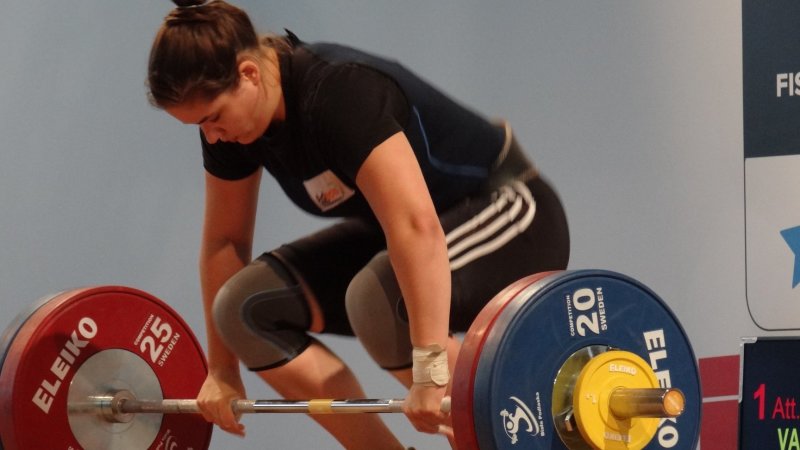
Olympic weightlifter Anna Van Bellinghen from Belgium is not happy about the International Olympic Committee's (IOC) decision to allow transgender athletes to compete in the upcoming Tokyo Olympics, where she will face New Zealand's Laurel Hubbard, a biological male who now identifies as female. Hubbard is the first transgender athlete to compete at the international games after the IOC revised their qualifying requirements for the upcoming competition, which angered several athletes.
"Anyone that has trained weightlifting at a high level knows this to be true in their bones: this particular situation is unfair to the sport and to the athletes," Van Bellinghen said, as reported by the New York Post.
The Belgian weightlifter won bronze at the European Weightlifting Championships and is set to qualify for the over-87 kilogram competition in the Tokyo Olympics, where she may face Hubbard. The New Zealander has yet to satisfy the country's Olympic Committee requirements, but has already raised concern in the sports arena.
Hubbard became eligible to play in games such as the Tokyo Olympics in 2015, when the IOC dcided that transgender athletes or biological males who identify as females can compete as female as long as their testosterone levels are less than 10 nanomoles per litre in the last year before the competition. The decision was not welcomed by female athletes and scientists who believe that testosterone levels are not the only factor to take into consideration when determining biological advantages of biological males versus females.
Hubbard, who is 43, identified as a male for 35 years before transitioning to female in 2012. Reuters reported that while Van Bellinghen supports the transgender community and believes in arguing for their rights, she believes that there has to be a "stricter legal framework for transgender inclusion in sports, and especially elite sports."
"For athletes the whole thing feels like a bad joke. Life-changing opportunities are missed for some athletes-medals and Olympic qualifications-and we are powerless," Van Bellinghen lamented. "I do believe that everyone should have access to sports, but not at the expense of others."
This is not the first time Hubbard faced criticism for being allowed to compete in elite sports such as the Tokyo Olympics or the first time the IOC has drawn flack for their decisions. The Samoan Weightlifting Federation (SWF) has long opposed Hubbard's inclusion in such sports, with SWF president Jerry Wallwork admitting that he opposed Hubbard's qualification "greatly back in 2018."
Wallwork believes, however, that Hubbard is not entirely to blame. He wants to shift the focus to the IOC sub committee, "which approved participation of transgender athletes in women's weightlifting." He told InsidetheGames, "Changes must be made from the top, from the IOC."
The SWF president suggests that "more research" must be done with regards to transgender athletes' performance or that the IOC create an entirely new category strictly for transgender lifters instead. Wallwork argued, "Especially in contact sports and power sports like weightlifting, there is a disadvantage for female athletes against transgender athletes."



















